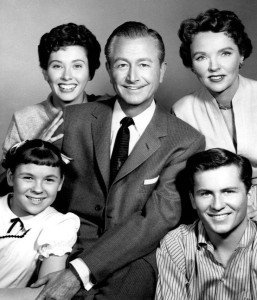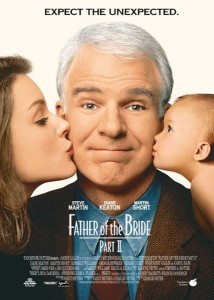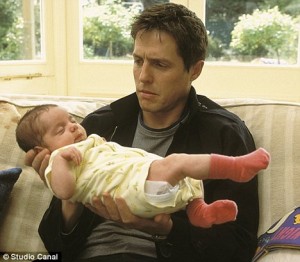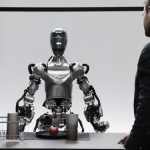The Father Figure and Media Representation (HPC3O1)
by Diana Luciani, former AML Board Member and Teacher, Peel DSB, Ontario
As part of the Grade 11 Parenting Class, this is an examination of the representation of family—particularly fathers as the male role model—in media messages. As part of the family types/models students learn about in the course, students will inventory sitcoms as examples of these family types, and compare and analyze them for representation (including stereotypes). Traditionally, a lack of a father figure has defined many television characters, however good father role models also exist in television sitcoms. Students will discover both the negative, and changing, more positive role of the father figure as represented in television sitcoms. Which are predominant? And what does this representation signify?
Materials:
- Television sitcoms featuring dads, including Two and a Half Men, etc.
- Media survey
- Media chart
- Media reflection
- AML Media Studies Triangle (use as a handout)
- AML Eight Key Concepts of Media Literacy (use as a handout)
- AML Media frameworks – Codes and Conventions (use as a handout)
Key Concepts of Media Literacy addressed in this activity:
Media construct reproductions of reality.
Media represent versions of reality.
Media texts communicate values messages.
Audiences use past experiences and skills to negotiate meanings in media texts.
Media texts communicate political and social messages.
Media texts’ form and content combine to communicate meaning.
Each medium has a unique aesthetic that helps determine what is effective and pleasing.
Timeline: 3 days
Before: (Day 1)
During the Parenting course, various family structures and representations of family in the media are discussed, with a lot of attention placed on the importance of the mother in the family; unfortunately often leaving Dad in the shadows.
Review these notions with the class, before turning the attention to the representation of the father, or father figure, in media messages. To build on student awareness, and to activate prior form and content knowledge, students will complete a survey (see questions below).
Students will be making connections with representations of fathers they’re familiar with in the media, as well as their own personal experiences with their fathers. Follow the survey up with a class discussion of student analysis.
Provide and review the following handouts with the class: AML Media Studies Triangle, AML Eight Key Concepts of Media Literacy, AML Media frameworks – Codes and Conventions, along with the essential ingredients of a sitcom and characterization, to get students prepared for tomorrow’s sitcom viewing.
The media survey should contain the following questions:
- What different types of families exist in today’s society?
- Do media messages represent all of these different family types?
- Which films can you recall that included the role of a father?
- Which songs/videos can you recall that included a father in the theme?
- Which family sitcoms do you watch on TV?
Circle the characteristic(s) you believe best describe(s) the role of the father figure in the shows that you watch:
Lazy Workaholic Breadwinner Incompetent
Offers bad advice Family-oriented Boss of the house Lost without mom
Offers good advice Boorish Metrosexual Friend
Insensitive Powerful Doofus Loving
On average, most TV shows portray the father of the family as:
Present
Present and close with children
Present but not close with children
Absent
Overall, can you relate to the shows? (Are they relevant and match your own home experiences?)
Yes Explain:
No
Somewhat
- What is the role of man in society? Does this correlate with what you see represented in media texts?
- In your opinion, what makes a successful man?
My idea of a good father is someone who: (Circle your answer(s))
Is around Is a good role model
Knows me well Is responsible
Respects me Is loving
Cares for me, no matter what Is easy to get along with
Looks out for me Does things a typical daddy should do
Provides for me Is all of the above
- On average, are fathers portrayed more negatively or positively in media texts?
- Who is more responsible for creating the fatherly role as represented on TV: men or women?
- Do you believe fatherhood comes less naturally (is more challenging) for a man than motherhood is for a woman? Explain.
- How do you know when you’re watching a TV family rather than a documentary about a real family?
During: (Day 2)
To build on student analysis, link the previous day’s discussion with today’s inventory of media texts: sitcom clips focusing on the examples of fathers. Have students compare them to the father as parent models learned about in the course, and to their own definition and reality of the father figure. Have students use the following chart headings to analyze their viewing of the sitcoms:
| Sitcom Title | Name of Father Figure |
Characteristics (Family type, interaction, setting, humour) |
Representation, beliefs, values | Role, stereotype, bias? |
Positive or negative impression? Accuracy? |
Problem & Resolution |
Purpose: Lesson or escape? | Audience |
After: (Days 3)
Have students write a media log reflecting on their findings of father representations from the previous days. Collect their analyses for evaluation, along with the chart from the previous day. Questions for the reflection should address the following:
- What differences did you notice between the families represented?
- Is there a difference between TV families and real families? TV fathers and real fathers? Are the depictions accurate? Explain.
- What constructions of reality, codes and conventions, were used to portray the fathers and families?
- Which representation was most like your family? Your father? Explain.








